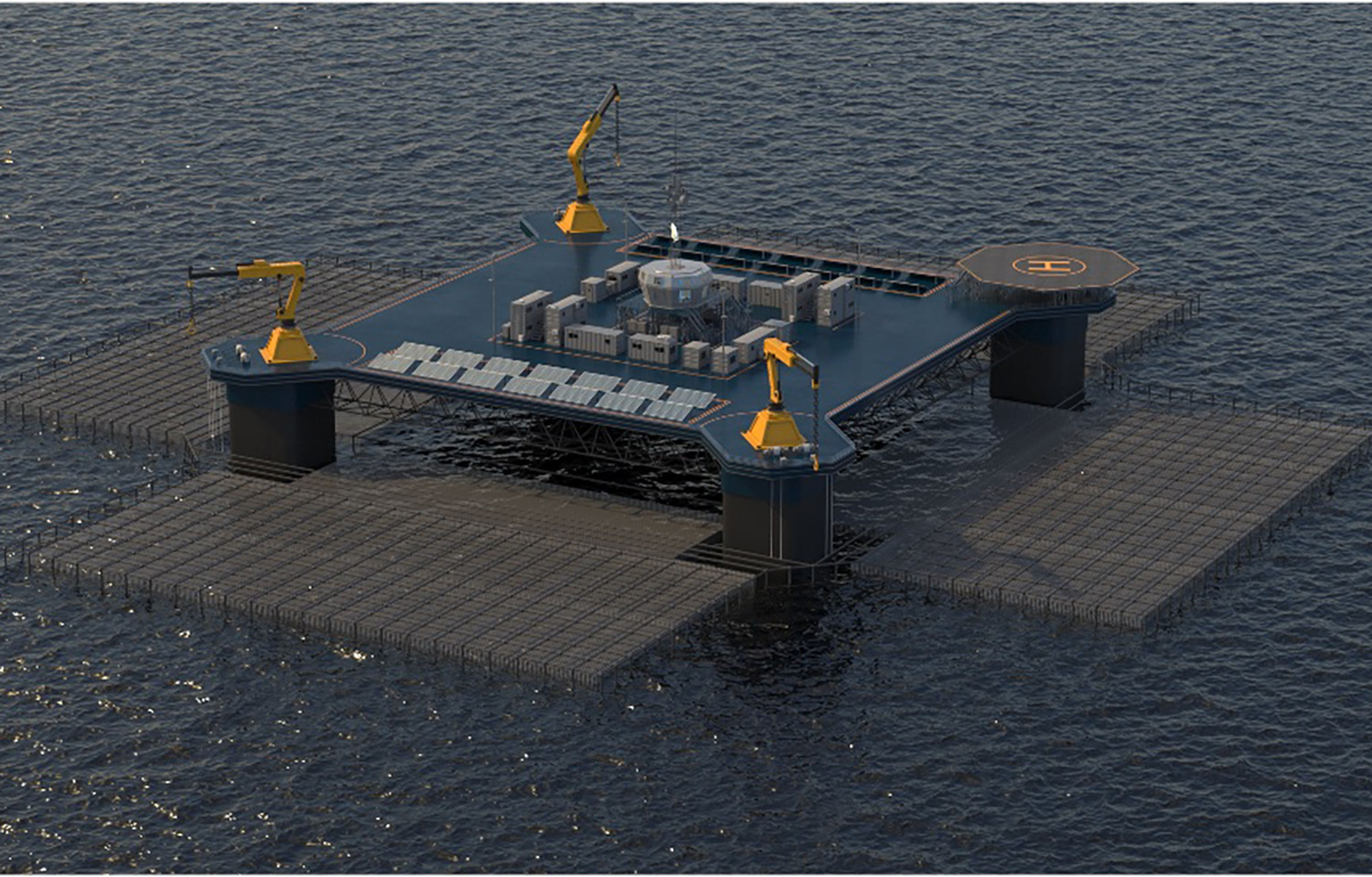Ramat Negev, Israel-based Mariculture Systems aims to be the first company to set up a large-scale offshore fish farm off the shores of Portugal.
The farm would grow sea bass and sea bream and be located some 15 kilometers off the coast of the southern Algarve region of Portugal. If all goes to plan, the farm will be just the first of 10 systems the company hopes to set up in Portugal in the coming years.
“Mariculture Systems has come up with an exciting, disruptive approach to fish farming in the open sea, which offers a profitable and sustainable way to produce high-quality fish of almost any species,” Mariculture Systems CEO Yaron Bar-Tal told SeafoodSource.
To ensure the farm’s effectiveness, the company said it would employ patented CORALIS technology, which is a semi-submersible platform engineered to sustain 17-meter-high wave surges. The basic system comprises an outer layer of 12 deep cages, with an inner layer of eight cages, surrounding a central platform. The platform houses accommodation pods for six onsite staff members and 10 guests, as well as a kitchen and dining area, meeting rooms, laboratories, and a management hub. Energy for the platform will be provided by solar and wind power, and the lifespan of the platform is estimated to be 25 years.
“Our system makes full use of AI solutions and automated controls that minimize the number of personnel needed to operate a farm while optimizing fish health, welfare, and growth. Each farm [has designs to] grow between 7,000 and 10,000 metric tons [MT] of fish per year, depending on the species. The submersible nature of the cages, which can be lowered to a depth of 30 meters, supports the natural behavior of fish, which is to dive below the waves during storms” Bar-Tal said. “We can also size the cages up or down or change their shape to accommodate salmon, yellowtail kingfish, or tuna, for example. Our system is designed to be completely flexible, and we anticipate a lot of interest from companies keen to get into offshore farming.”
Discussions are underway to secure a supply of juvenile fish for the farm, but there are also opportunities to build a substantial hatchery and nursery on the mainland.
CORALIS also offers collaborative opportunities for scientific data-gathering by the wider aquaculture sector, academia, and others, including feed producers, according to the company.
“We chose Portugal as the first location for the CORALIS farm for several important reasons," Bar-Tal said. "First, Portugal has a National Strategy for the Sea for 2021-2030 that actively encourages offshore aquaculture, technological development, and blue innovation; second, the country has a large seafood deficit; third, the south coast offers excellent parameters in terms of water quality, depth, and weather stability; and finally, it offers good access to the European market."
According to Fausto Brito e Abreu, the deputy CEO of Mariculture Systems, licensing formalities in Portugal are well-defined and the company is confident it will receive its license to operate by the end of 2024.
Recruitment is now underway for a finance specialist to raise the necessary funds for the build-out stage, which are estimated at EUR 80 million (USD 89 million), as well as sufficient working capital to take the company through to revenue generation, which is expected to occur by 2027.
“We will need around 18 months to construct the farm, deploy it, and test all the systems. Once the juveniles are transferred in, they will take 13 to 14 months to grow from 30 grams to the market size of 450 grams,” Mariculture Systems’ Portugal Director Peter Beringer said.
Initially, the company's sales focus will be on the domestic market, Beringer said, with spillover eventually carrying over into the wider European market. Processing and packing will take place in the fishing town of Vila Real de Santo Antonio, where the company has its Portuguese headquarters.
Installation of further CORALIS platforms will open up market opportunities as far afield as China and the U.S., Beringer claimed.
“We are currently very focused on three initial pillars: engineering, regulation, and financing. But, once the first CORALIS platform is in the water and functioning well, we can look to the many possibilities the future holds. Who knows, our fish farms may one day even become a tourist attraction,” he said.








